Search Results
Showing results 121 to 140 of 420

A Crayon Rock Cycle- Metamorphic
Source Institutions
This is part 2 of the three-part "Crayon Rock Cycle" activity and must be done after part 1: Sedimentary Rocks. In this activity, learners explore how metamorphic rocks form.
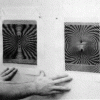
Moiré Patterns
Source Institutions
In this activity about light and perception, learners create and observe moire patterns.

Name That Frequency
Source Institutions
This activity was designed for blind learners, but all types of learners can model how vibrating particles, such as in a sound wave, bump into other particles causing them to vibrate, and that the vib
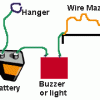
Motor Learning
Source Institutions
In this activity (26th on the page), learners construct an easy-to-build device and test motor learning.
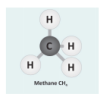
Let's Make Molecules
Source Institutions
In this activity, learners use gumdrops and toothpicks to model the composition and molecular structure of three greenhouse gases: carbon dioxide (CO2), water vapor (H2O) and methane (CH4).
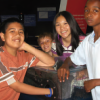
Size and Scale: Probing and Predicting
Source Institutions
In this quick activity about predicting (located on page 2 of the PDF under Where's Nano?

Ice Cream
Source Institutions
In this chemistry activity, learners use the lowered freezing point of water to chill another mixture (ice cream) to the solid state.

Tissue Paper Spray Art
Source Institutions
In this activity, learners observe color mixing and absorbency using colored tissue paper and spray bottles.
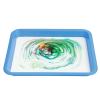
Milk Magic
Source Institutions
In this activity, learners experiment with how dish soap and fat interact by making a colorful swirl.
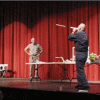
Marshmallow Puff Tube
Source Institutions
In this demonstration/activity, learners observe as a regular size marshmallow is blown through a tube made from a manila file folder.
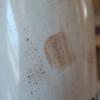
Dusting For Fingerprints
Source Institutions
In this activity, learners become detectives and use chemistry to investigate fingerprints.

Mammal Flipbooks
Source Institutions
In this activity, learners explore mammal locomotion by constructing flipbooks.
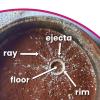
Make An Impact
Source Institutions
In this hands-on activity, learners simulate the crashing and smashing of a meteor impact using household cooking supplies.
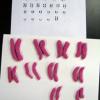
Chromosome Models: Karyotyping
Source Institutions
This activity was designed for blind learners, but all types of learners can have a tactile opportunity to construct a karyotype, an organized model of an organism’s chromosomes, conveying the chromos

Powder Particulars
Source Institutions
In this introductory activity and demonstration, learners are introduced to the concept that different substances react chemically in characteristic ways.
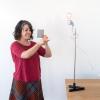
Polarized Sunglasses
Source Institutions
In this activity, learners explore how polarizing sunglasses can help diminish road glare.

DIY Elephant Toothpaste
Source Institutions
In this activity, learners will experiment with catalysts to create an at-home version of elephant toothpaste.
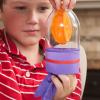
Build a Lung
Source Institutions
Most of the time, we don't have to think about breathing. In fact, you're probably breathing right now without thinking about it!

Eggs at Rest Stay at Rest
Source Institutions
This is an activity about inertia, Newton's First Law of Motion. Learners will discover how an egg at rest, or any object at rest, stays that way.

Spaghetti Strength
Source Institutions
In this activity on page 7 of the PDF, learners explore how engineers characterize building materials.
